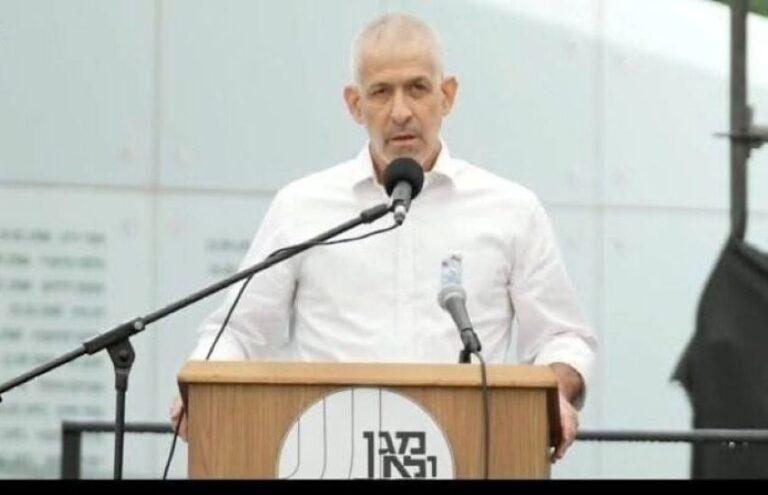 There is yet another issue that is hitting the chareidi media in Israel, not a new one per se, but one that seems to be unfolding now, in the heart of summer season.
There is yet another issue that is hitting the chareidi media in Israel, not a new one per se, but one that seems to be unfolding now, in the heart of summer season.
Restaurants and eateries located in the north, along areas of some of the most popular vacation spots, are in some cases listed as kosher with a kashrut certificate but are open on shabbos. The obvious question, even if they maintain a kashrut standard during the week, is who is watching the kitchen on shabbos?
While tens of thousands of people are heading north bein hazmanim, the period between Tisha B’Av and Rosh Chodesh Elul, many entering stores with signs “open 24/7 – kosher”.
It appears the red light was lit by the chief rabbi of Kiryat Shmona, Rabbi Baruch Pechter, Chadrei Chareidim agency reports. Rabbi Pechter advertised that one should no longer rely on eateries under the supervision of Rabbi Shalom Levy, because some of those stores are open on shabbos. Rabbi Levy decided not to take the matter sitting down, filing a libel suit for NIS 100,000 in the Tzfat Rabbinate against Rabbi Pechter. The Tzfat Rabbinate is currently addressing the matter, and has instructed Rabbi Pechter to refrain from discussing the matter with the media since it is an ongoing case.
In one case the reports addresses the community of Shar Yashuv, in the north, which operates eateries and tzimmerim (bed and breakfast lodging). The owner of the complex turned to Rabbi Rushitzky for permission to operate on shabbos. He refused and revoked the kashrut supervision as they operate on shabbos, only to find he had been replaced by Rabbi Levy, who granted a hechsher the report adds.
The Chief Rabbinate forbids granting a hechsher to an establishment which does not honor the shabbat, but Rabbi Levy seems to have a different view. He was not available for comment but people close to him indicate the rabbi feels that providing a hechsher, he is guaranteeing the kosher standard for tens of thousands of people who would otherwise be eating in restaurants without supervision. When asked “what about shabbos?” They replied he relies on Hashem’s mercy.
Asked what can be done, Rav Rafi Yochai, who heads the Chief Rabbinate Kashrut Fraud Division, he explained he is limited. The law does not permit him to fine rabbis, only stores and businesses, so in essence, he is powerless. He further explained the only agency that can address the rabbi, Rabbi Levy in this case, are the chief rabbis of Israel, who can remove Rabbi Levy from his position, quickly adding it is very unlikely that this will be done.
In his response to the report, Rabbi Levy states Chadrei Chareidim exaggerated, explaining there are only three restaurants with a hechsher operating on shabbos. He adds the hecsher is granted “with a teary eye and a pained heart” to save people from eating in prohibited places. He adds that he saves many many people from eating in a place without a hechsher five days a week, and that includes many chareidi individuals who eat in the restaurants while traveling in the north as well.
Rabbi Levy adds there are two sets of dishes, for the weekday and for shabbos and yomtov, when the mashgiach is not present. The mashgiach is the only one with a key and locks away the ‘kosher’ set when he leaves for shabbos and yomtov.
As far as concerns that religious people may be eating on the wrong dishes on erev shabbos and motzei shabbos, he says there is no concern since on the certificate is details the times during which the restaurant is under his supervision, to avoid this specific problem.
There are two mashgichim present during the entire day. He adds it is impossible to send a mashgiach on shabbos since the restaurants are outside the t’chum shabbos’ – the permitted walking distance. In addition, the eateries are located in Shomer Hatza’ir type communities and there are no local residents who can fill in as a shabbos mashgiach.
Rabbi Levy insists that he is not violating Chief Rabbinate directives, explaining far off places may be granted weekday supervision under certain conditions.
The rav states that if the original report would have been conducted in a proper comprehensive and journalistic fashion, most of the accusations would have been dispelled.
JKN would also like to add that in the past, a hechsher was granted for cruise ship for weekdays only, while the supervision from the Rabbinate did not apply on shabbos.
(Yechiel Spira – Jerusalem Kosher News, http://www.jerusalemkoshernews.com)











5 Responses
There are many kosher facilities open on Shabbos, and some even have frum customers (such as many Duncan Donuts that have hecksherim, are open 24/7, and are run by goyim considered trustworthy not to sneak in treff when we aren’t looking). Indeed one sign of a “dubious” hecksher(from a Hareidi perspective- the Conservatives probably them to be too strict) is the willingness to allow a restaurant to be open on Shabbos.
I would never eat there, and I wouldn’t trust anyone who gave them a hecksher. Few hareidim would eat there. But that doesn’t prove its treff.
i know that I’m missing something here. how do hotels and hospital restaurants operate on schabos
with a hechsher .
Hotels and Hospitals do have mashgichim that are there on Shabbos to make sure there is no chilul Shabbos in the kitchen.
Akuperma (#1) – You say “I would never eat there, and I wouldn’t trust anyone who gave them a hecksher.”
Think before you leap.. You are trashing effective supervision by many a choshev Vaad HaKashrus which regulates diligently non-Jewish owned establishments. Such may not be neccessary in the insular worlds of Boro Park, Williamsburgh, Flatbush, Lakewood or Monsey – but it is in the rest of the velt.
There is no way such a place should be granted a hechsher.
In any case, we’re talking about Rabbanut here. Regular Rabbanut (probably heiter mechira, when applicable).
Which chareidi person eats in a Rabbanut restaurant anyway?
Just yesterday I went to a bris of a son of a secular family member in Tel Aviv, in a hall with Tel Aviv Rabbanut hechsher. My wife asked questions about the kashrus there. Asked about separation between basar and chalav (apparently they have both there), she was told that one can use the same microwave for meat and milk one right after the other, just not together. When she told them that one has to wait 24 hours (and clean it), she was told that this is nonsense and “this is not a Mehadrin place”.
A mashgiach could not be found and the workers and management were all seculars.
Now, which chareidi person volunteers to eat there? Don’t worry, it’s kosher, certified by Rabbi Yisrael Meir Lau (who YWN loves) in the name of the Rabbanut!u